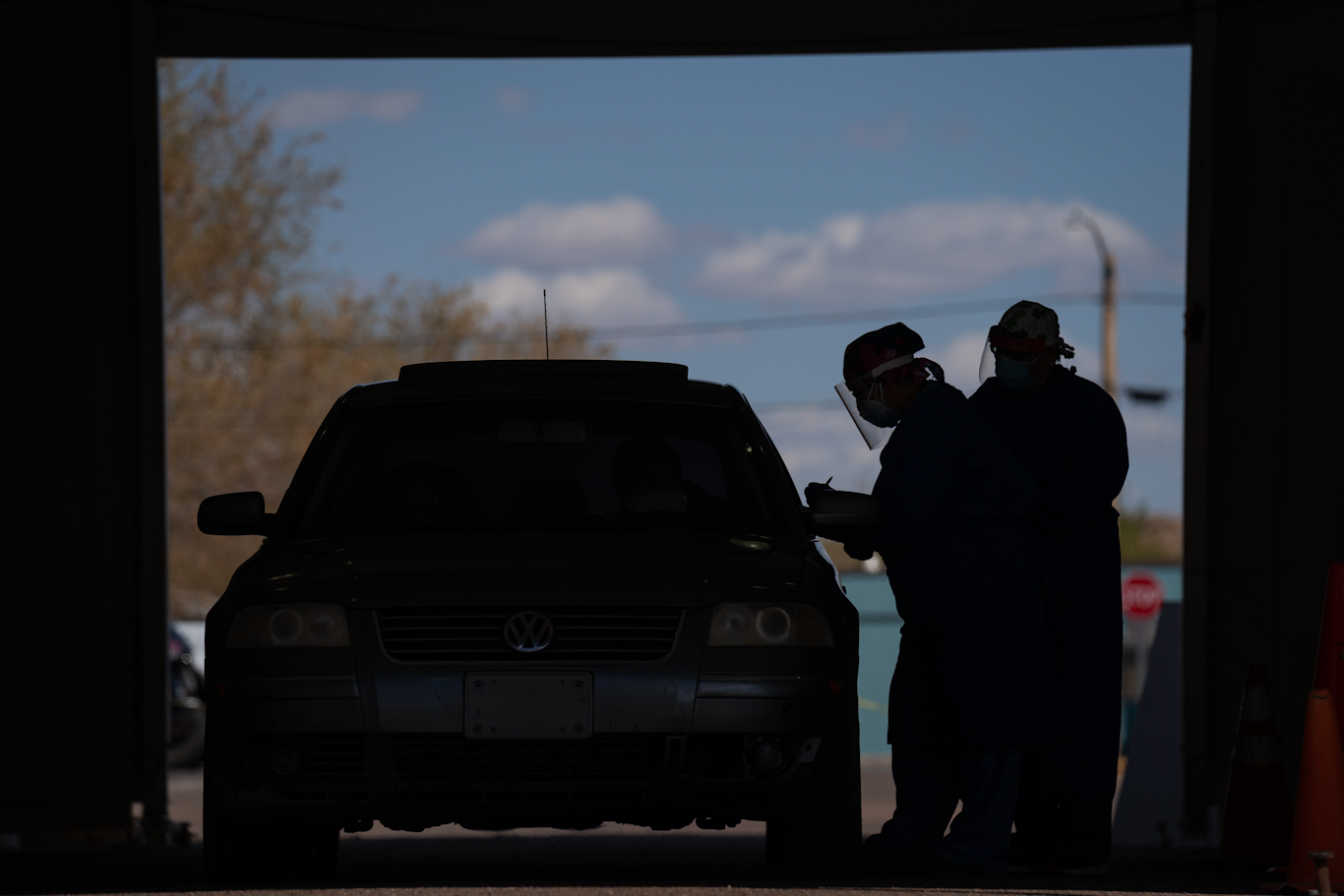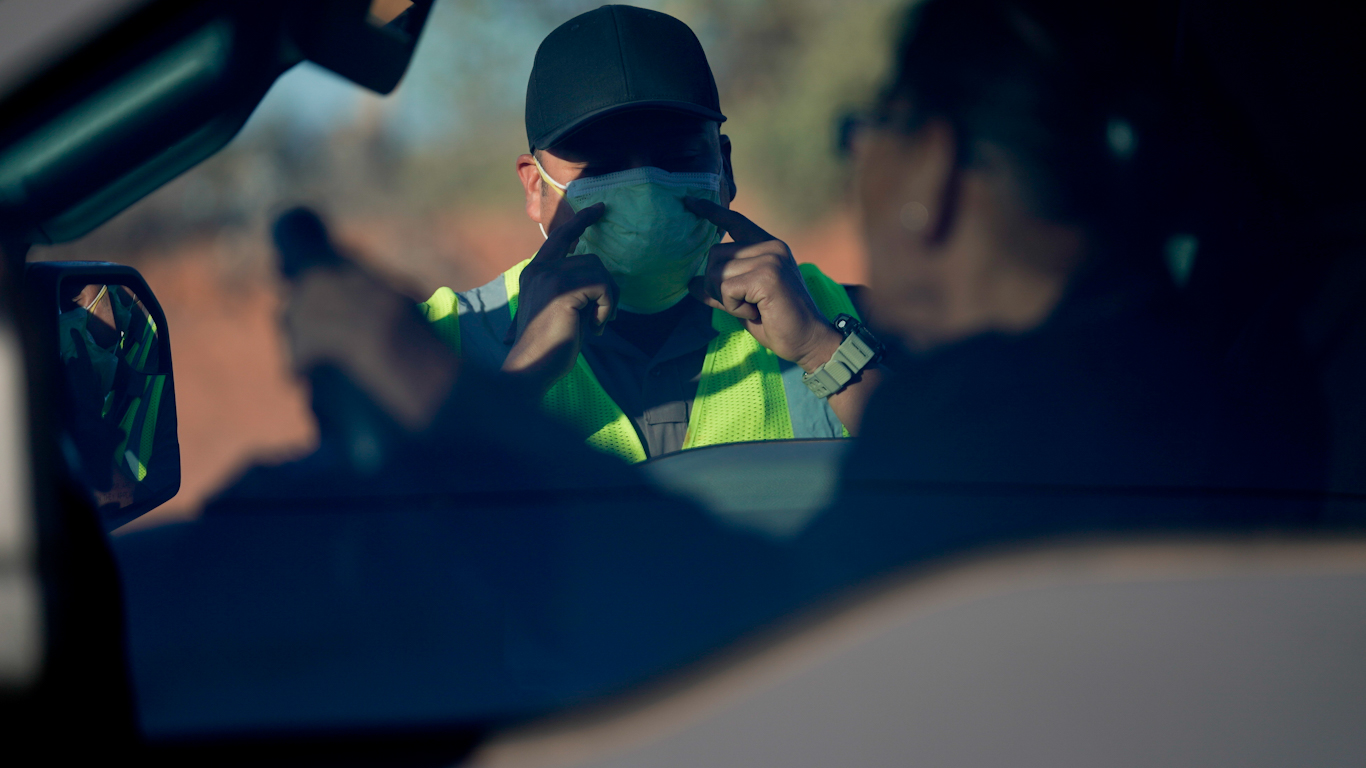By now it is no secret that COVID-19 is being used to justify profiteering, power grabs, and the incremental decimation of our right to privacy. It is also serving to perpetuate age-old practices of oppression against Native peoples and other minority groups in the United States, as evidenced by a secret policy enacted by a neonatal women’s hospital in Albuquerque, New Mexico, which deliberately singled out First Nation mothers and separated them from their newborn infants as a “preventative measure” against the spread of the disease.
State-level investigators referred findings related to the allegations first published in a joint investigative report by Pro Publica and New Mexico In Depth, which revealed that Lovelace Women’s Hospital conducted special screenings for pregnant women who met the unique criteria of the underhanded policy. Women who appeared to be Native American or lived in a particular zip code were subjected to an “additional step” in the process that normally would only include temperature checks and questions about whether they had been in contact with an infected person.
Clinicians at the only medical institution in New Mexico dedicated to women’s health would compare the zip codes of expectant mothers with Indian Reservation zip codes and place matches on the informally-named “Pueblos list”, designating them as persons “under investigation”. So labeled women would then be administered COVID-19 tests, resulting in the separation of babies from their mothers for up to three days.
One clinician, who remained anonymous, decried the practice as racial profiling, stating that the hospital seems “to be specifically picking out patients from Native communities as at-risk whether or not there are outbreaks at their specific pueblo or reservation.” The clinician’s claims are supported by data that shows that ten of the zip codes on the aforementioned list do not have a high rate of infection.
Hospital spokesman Whitney Marquez asserted that the practice was delineated in CDC guidelines. But no mention of geographical criteria for infection prevention and control at healthcare facilities can be found in official CDC guidelines. Additionally, the hospital’s claims that the practice of identifying asymptomatic COVID-19 test candidates based on zip codes was consistent with the CDC guidelines for identifying “hot spots” falls flat, since these are determined by county and not zip code. Furthermore, of the 22 zip codes on the “Pueblos list,” very few are located in areas deemed to be a hot spot and several that do fall within those county borders are not included in the list.
History repeated and augmented
The hospital also withheld information from Native American mothers about their right to refuse being separated from their infants or being tested in the first place. This lack of informed consent represents a recurring theme in the annals of Native American oppression, dating back to the days of racist paternalism enshrined in government-appointed guardianships of First Nations peoples – a federal program begun at the beginning of the twentieth century which assigned White men to administer the finances of individual tribal members.
The program was rife with corruption and abuse as many Natives were kept in the dark about the actual state of their economic resources, which were stolen right from under them by these so-called guardians. It wasn’t uncommon for one man to control the money of more than one individual and guardianship rights were often sold or traded among other Whites like company stock.

One particularly egregious episode in history saw the serial killing of multiple members of the Osage Nation of Oklahoma orchestrated by a government-appointed guardian who planned to assassinate virtually every last member of the tribe and, thereby accrue the rights to their collective wealth.
This sort of exploitation and oppression is hardly new to Native communities who continue to endure various kinds of ignominies like the scandalous situation unfolding at Lovelace Women’s Hospital. Insidious forms ethnic cleansing such as delaying breastfeeding and post-partum mother-child bonding practices that increase the baby’s overall health and development of a strong immune system.
But, as many Native American leaders have expressed at one time or another, these forms of oppression are coming for all of us eventually as the corporate model fully overtakes the fragile instruments of democracy and those who have benefited until now find that they, too, are targets.
A quick loading tyranny
The measures taken to curb the impact of the COVD-19 pandemic have opened the door to an increasingly more powerful and independent private sector. Coupled with an extremely hands-off approach by present and recent administrations, corporations are taking full advantage of this deliberate vacuum of power to forge a society into a version more line with their “free” market-based ideals, where ‘we the people’ are at once the source of their profits and the guarantor of their investments.
Digital Contact Tracing (DCT) technologies have proliferated over the course of the last few months and are set to expand greatly as the country slowly reopens. But, concerns are also multiplying over the tech industry’s poor track record on matters of privacy and equal rights.
DCTs have the ability to collect vast amounts of sensitive data, usually reserved for instances like hospital visits or a doctor’s clinic. But, as the “new normal” moves into place and demand for these apps rises, the lack of existing legislation surrounding data protection has given corporations like Apple and Microsoft virtual carte blanche on how such data is handled or accessed.
While many of these DCT apps provide boilerplate user agreements that give people ostensible control over the information they provide, at the end of the day these end up being nothing more than handshake agreements between one giant self-regulating corporation and a largely defenseless individual, who has little recourse in the event of a data breach or a sudden change in the terms of service.
The tech companies developing these data-collection apps aren’t bound by federal laws protecting medical information like The Health Insurance Protection and Portability (HIPPA), which only applies to healthcare providers and their direct business associates. Furthermore, the online marketplaces where people would find these apps cannot currently distinguish between a DCT app and Candy Crush, placing a user’s data security at risk from the get go.
However, these particular concerns may simply end up being red herrings to crowd out smaller players from these emerging digital “healthcare” markets once stricter laws are put in place. But, since it is the big fish like Apple, Microsoft and Amazon who end up writing many of those laws through lobbying groups and other methods of influence, more attention should be paid to the history these corporations have in regards to the use they make of the data they collect.
We Know Who You Are
DCTs are only the latest in a slew of mass surveillance tools being implemented at a large scale through our ubiquitous smartphone devices and other internet of things (IoT) infrastructure, which will all inevitably blend together to form an interconnected grid of uninterrupted data-collection.
Burgeoning technologies like facial recognition have recently come under the spotlight after the protests that erupted over the killing of George Floyd prompted some companies, like IBM, to publicly announce their exit from this space given the technology’s unmatched ability to carry out racial profiling like that which led to the police murder of another unarmed black man. But, as is typical of many large companies, grand declarations of “corporate responsibility” are seldom more than marketing ploys.
IBM may have said all the right things at the right time in order to burnish its image, but privacy advocates and civil rights organizations have been quick to point out the devil in the details of IBM’s sudden social consciousness and have exposed the careful language used in their announcement. By stating they would stop selling “general purpose” facial recognition software, the company could have committed to stop selling nothing at all, since “a lot of the work IBM does is actually customized work for their customers” said Eva Blum-Dumontet of Privacy International. Civil rights group Mijente, likewise, seemed skeptical of the feel-good assurances, questioning whether IBM would still be in the market for customers like Rodrigo Duterte in the Philippines.
IBM, of course, is also entering the DCT game and began testing their own “opt-in” app to track the location of its employees in India back in April. Microsoft is far more advanced in the growing DCT market, having co-developed a leading contact tracing app with Apple. But Microsoft is also a player in the facial recognition market and also made a big show about “banning facial recognition sales to police” just a few weeks ago.
Microsoft’s promise rings even more hollow, perhaps, than IBM’s as emails recently uncovered by the ACLU revealed that the company has been trying to sell its facial recognition software to the DEA; an agency tasked with leading the failed war on drugs, called by some the “new Jim Crow” because of the notorious racial bias in the so-called war’s prosecution.
Feature photo | An officer with the Navajo Nation Police talks to a driver at a roadblock in Tuba City, Ariz., on the Navajo reservation on April 22, 2020. Carolyn Kaster | AP
Raul Diego is a MintPress News Staff Writer, independent photojournalist, researcher, writer and documentary filmmaker.


